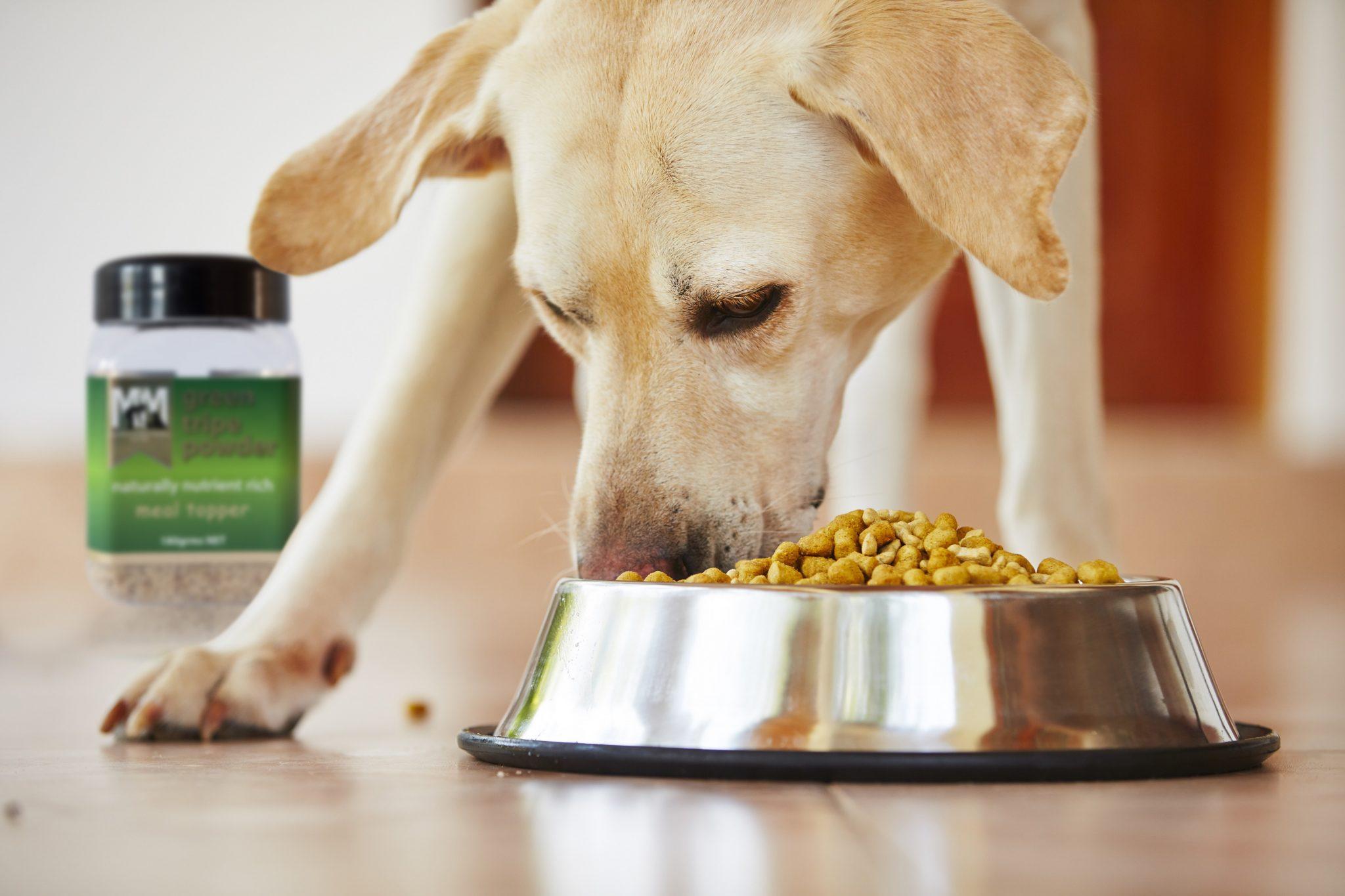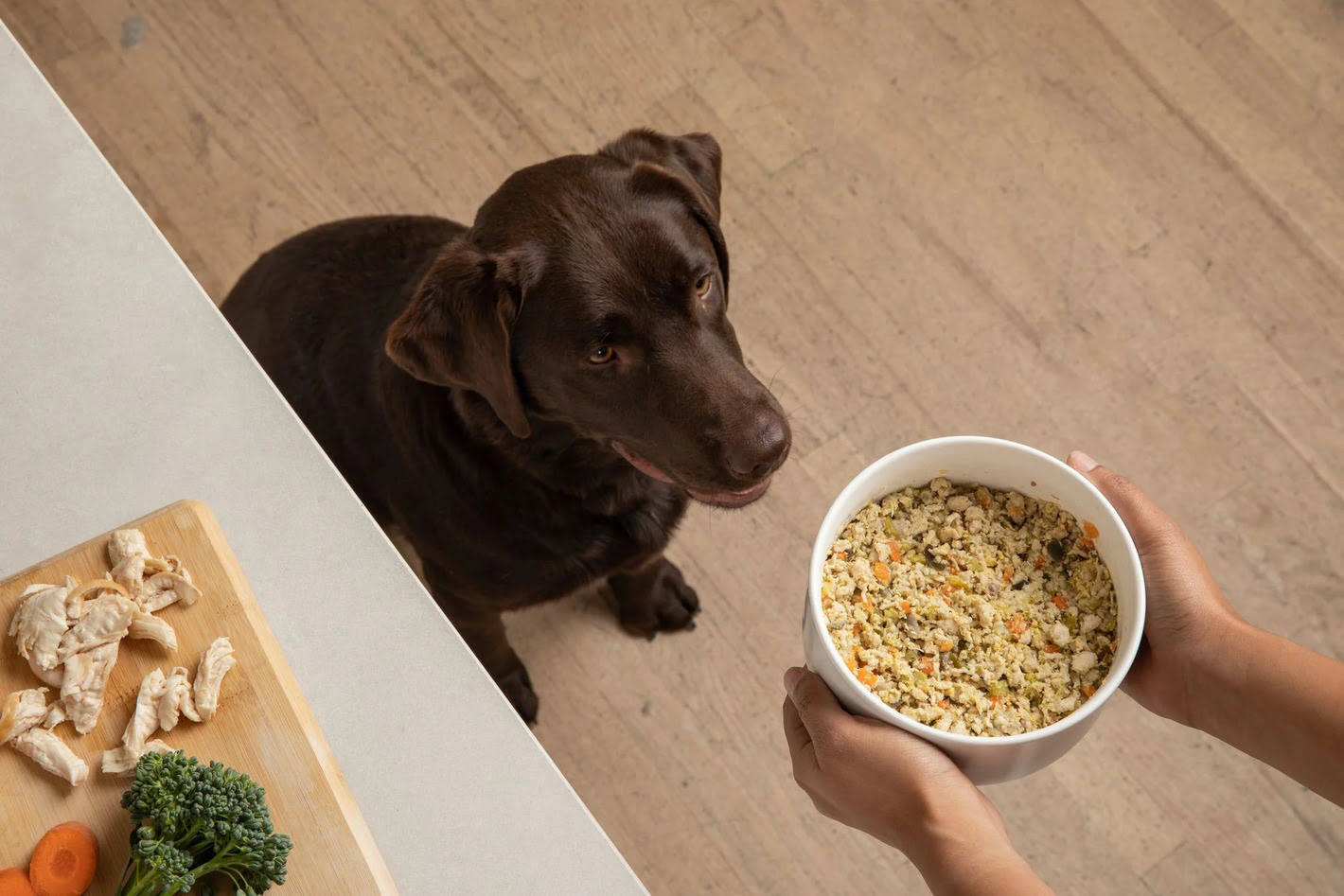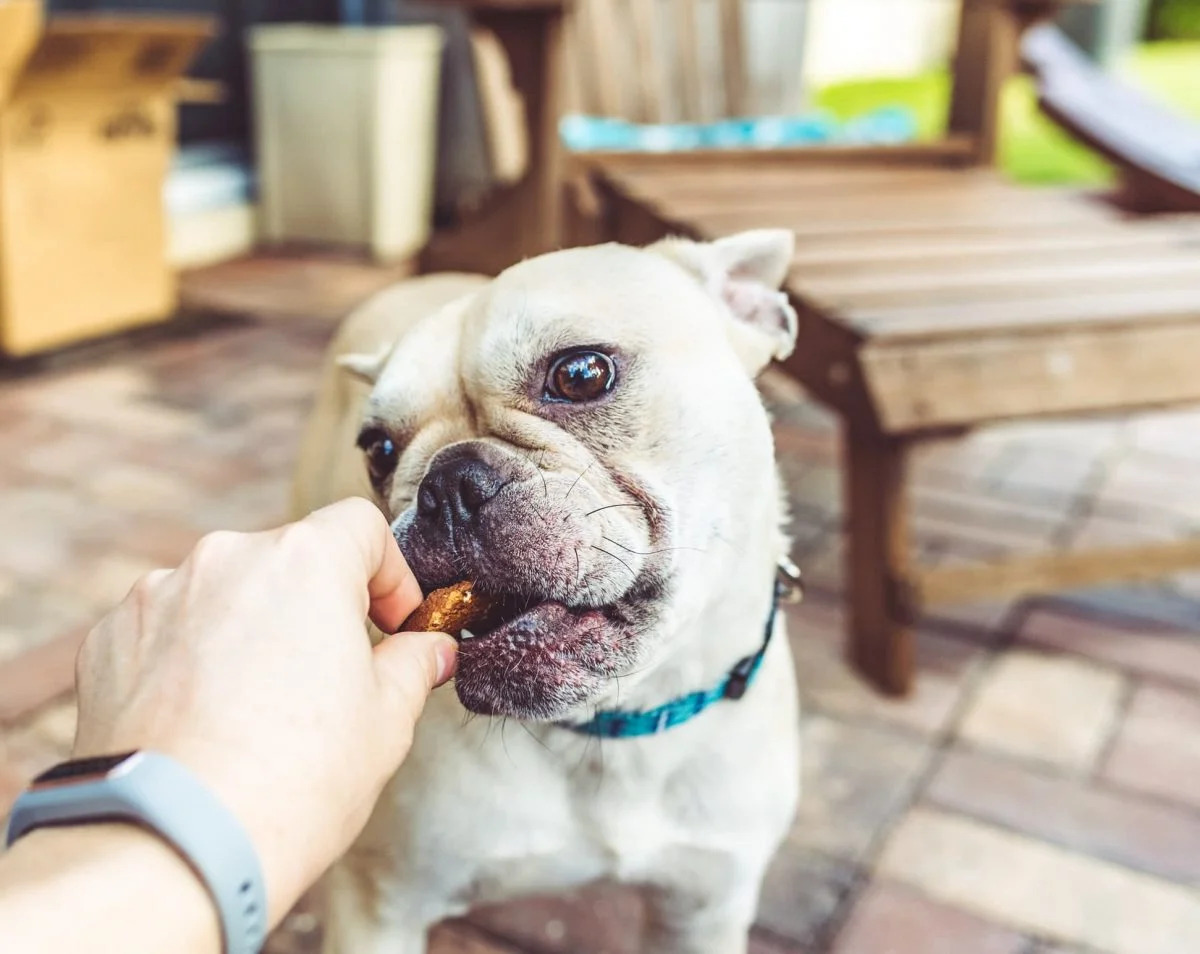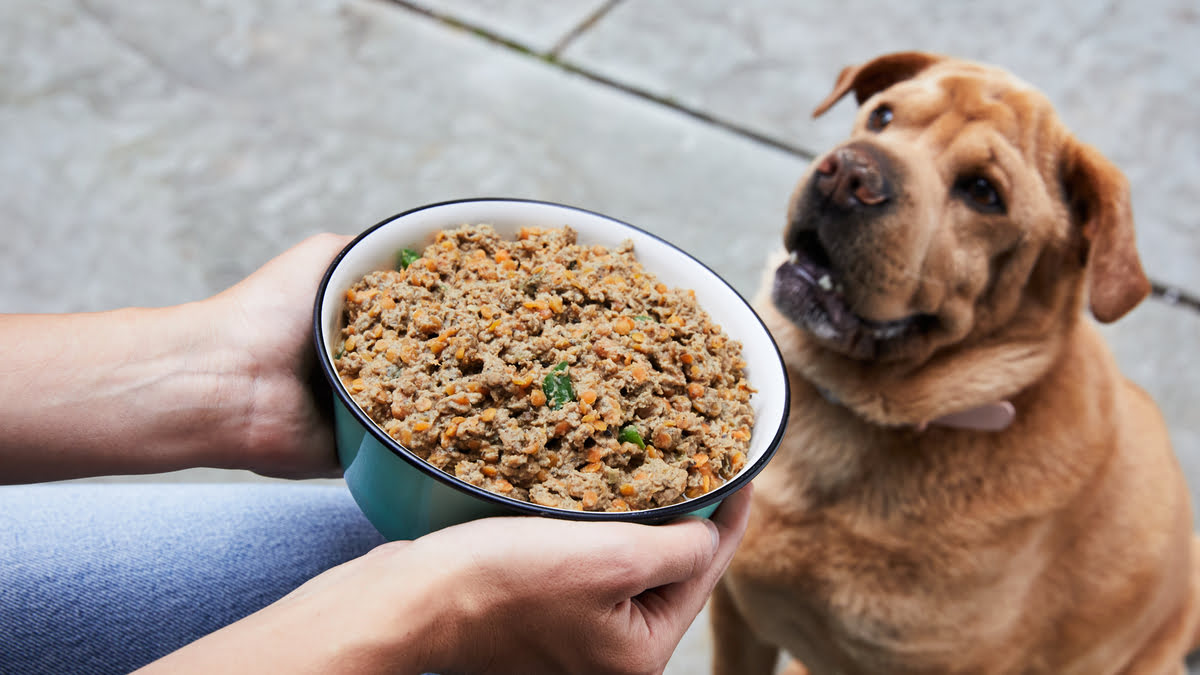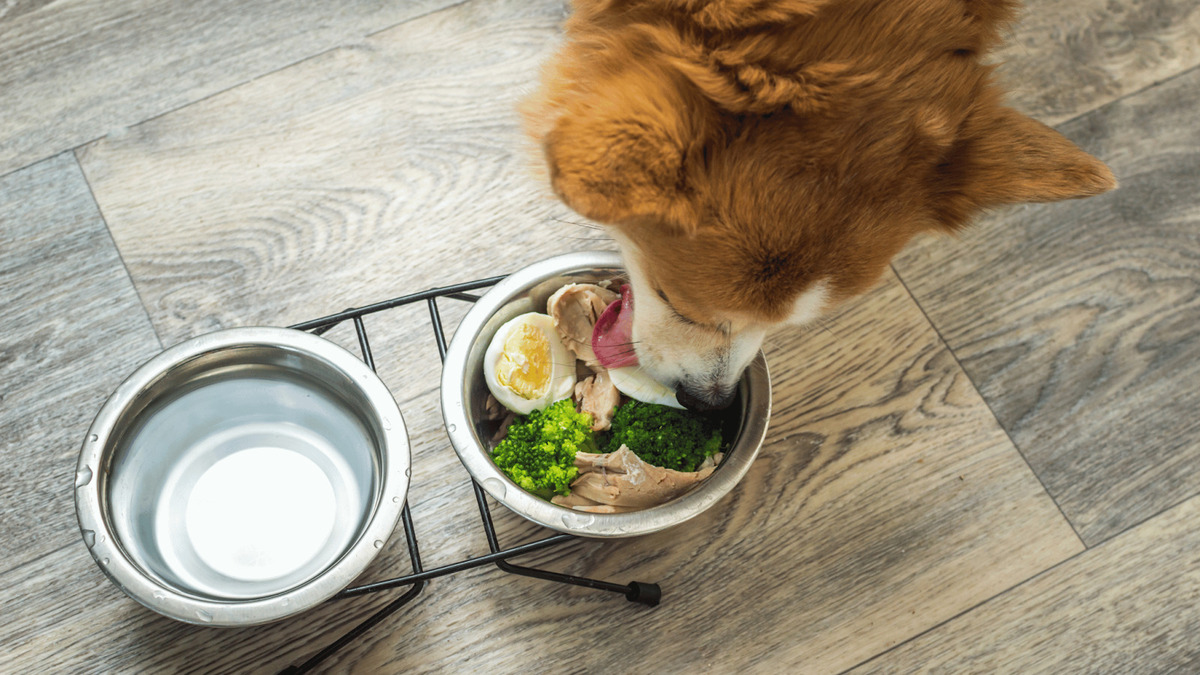Home>Health & Wellness>Common Health Issues>What Is A Good Dog Food For Dogs With Food Allergies?
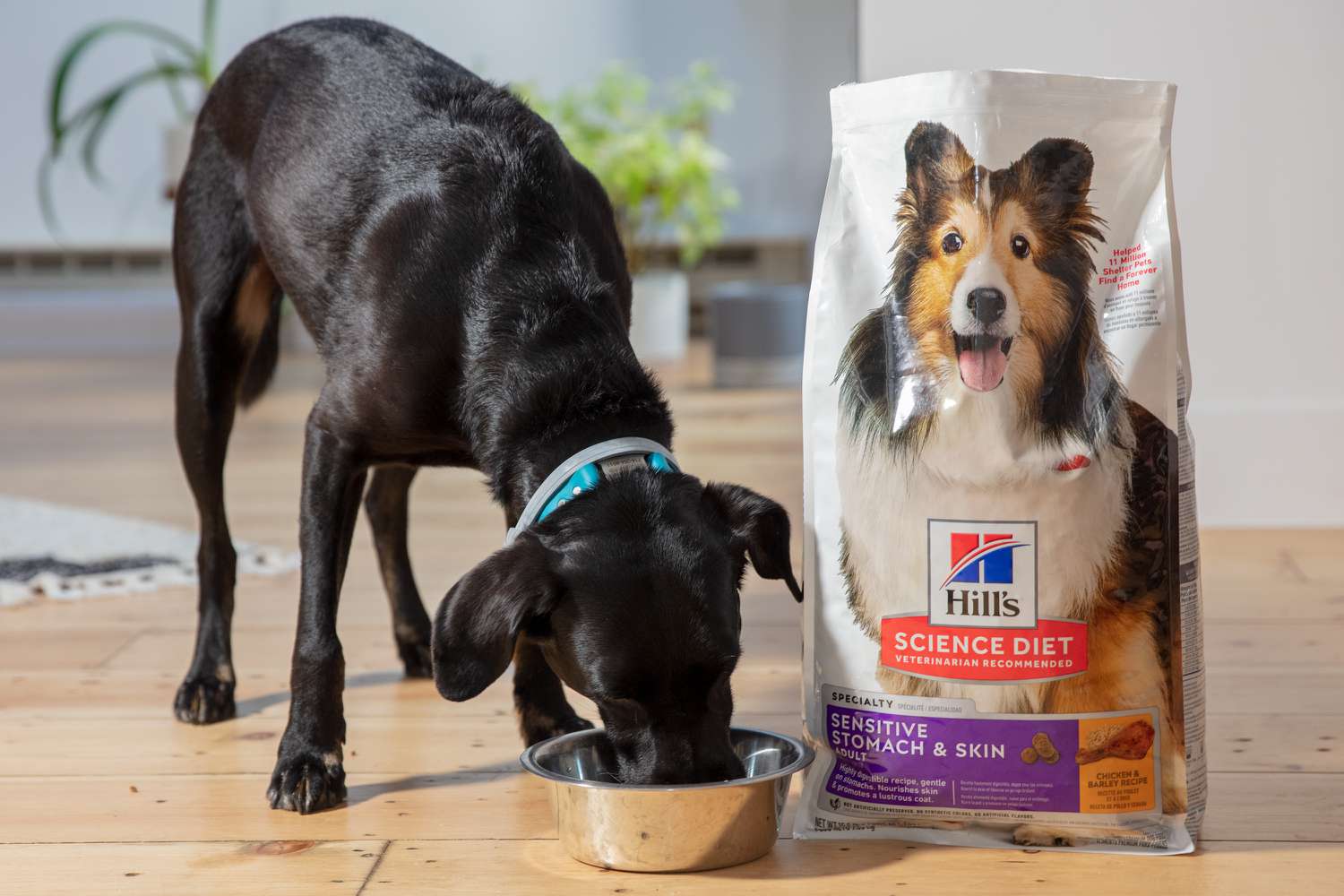

Common Health Issues
What Is A Good Dog Food For Dogs With Food Allergies?
Modified: February 21, 2024
Discover the best dog food for dogs with food allergies and common health issues. Find the perfect solution to keep your furry friend healthy and happy.
(Many of the links in this article redirect to a specific reviewed product. Your purchase of these products through affiliate links helps to generate commission for Pawsomeoldies.com, at no extra cost. Learn more)
Table of Contents
- Introduction
- Understanding Food Allergies in Dogs
- Common Allergens in Dog Food
- Characteristics of Good Dog Food for Dogs with Food Allergies
- Ingredients to Look for in Dog Food for Dogs with Food Allergies
- Ingredients to Avoid in Dog Food for Dogs with Food Allergies
- Tips for Choosing the Best Dog Food for Dogs with Food Allergies
- Conclusion
Introduction
Finding the right food for your furry friend can be a challenging task, especially when your dog suffers from food allergies. Just like humans, dogs can develop allergies to certain ingredients in their food, leading to a range of uncomfortable symptoms. As a responsible pet owner, it's crucial to understand the unique dietary needs of your canine companion and provide them with a nourishing diet that supports their overall well-being.
When it comes to addressing food allergies in dogs, selecting the appropriate dog food is paramount. A good dog food for dogs with food allergies should not only cater to their nutritional requirements but also eliminate potential allergens that trigger adverse reactions. By making informed choices and being mindful of the ingredients in your dog's food, you can help alleviate their discomfort and promote a healthier, happier life.
In the following sections, we will delve into the intricacies of food allergies in dogs, explore common allergens found in dog food, and uncover the essential characteristics of good dog food for dogs with food allergies. Additionally, we will discuss the key ingredients to look for and avoid in dog food, along with valuable tips for selecting the best diet for dogs with food allergies. By the end of this comprehensive guide, you will be equipped with the knowledge and insights necessary to make well-informed decisions regarding your dog's dietary needs.
Understanding Food Allergies in Dogs
Food allergies in dogs occur when their immune system reacts abnormally to specific ingredients in their diet. Unlike food intolerances, which typically result in digestive issues, food allergies prompt an immune response, leading to a range of symptoms. These allergic reactions can manifest in various ways, including skin problems, gastrointestinal disturbances, and even respiratory issues.
It's important to note that food allergies are relatively uncommon in dogs, accounting for approximately 10% of all canine allergies. However, when they do occur, they can significantly impact a dog's quality of life. Allergies can develop at any stage of a dog's life, and certain breeds may be more predisposed to food allergies than others.
The symptoms of food allergies in dogs can be diverse and may include itching, excessive scratching, hair loss, ear infections, vomiting, diarrhea, and in severe cases, respiratory distress. These symptoms can be distressing for both the dog and their owner, often leading to a diminished quality of life and increased veterinary visits.
Identifying the specific allergens causing these reactions can be challenging, as the symptoms of food allergies often overlap with other health issues. However, with careful observation and the guidance of a veterinarian, it is possible to pinpoint the problematic ingredients and formulate an appropriate dietary plan for the affected dog.
In some cases, dogs may develop allergies to common protein sources such as beef, chicken, or dairy, while others may react to grains like wheat or corn. Additionally, artificial additives and preservatives in commercial dog food can also trigger allergic responses in sensitive individuals.
Understanding the nuances of food allergies in dogs is crucial for pet owners, as it enables them to make informed decisions regarding their dog's diet. By recognizing the signs of food allergies and taking proactive measures to address them, pet owners can significantly improve their dog's well-being and overall health.
Common Allergens in Dog Food
Identifying common allergens in dog food is essential for pet owners seeking to address their dog's food allergies effectively. While dogs can develop allergies to a wide range of ingredients, certain allergens are more prevalent and known to trigger allergic reactions in sensitive individuals.
-
Protein Sources: Protein-rich ingredients such as beef, chicken, lamb, and fish are common culprits in triggering food allergies in dogs. These proteins are frequently used in commercial dog food and can prompt immune responses in susceptible dogs. Additionally, exotic protein sources like venison and duck, often marketed as hypoallergenic alternatives, can still provoke allergic reactions in some dogs.
-
Grains: Despite the prevalent misconception, grains are not as common allergens in dogs as once believed. However, some dogs may exhibit allergic reactions to grains such as wheat, corn, and soy, leading to skin irritations and digestive disturbances. It's important to note that grain-free diets have gained popularity in recent years, but the link between grain-free diets and the prevalence of food allergies in dogs is still a topic of ongoing research and debate within the veterinary community.
-
Dairy Products: Dairy ingredients, including milk, cheese, and yogurt, can also trigger allergic responses in dogs. Lactose intolerance, which is distinct from a true milk allergy, is relatively common in dogs and can result in gastrointestinal discomfort. However, some dogs may develop genuine allergic reactions to dairy proteins, leading to skin issues and digestive upset.
-
Artificial Additives: Artificial preservatives, colorings, and flavorings commonly found in commercial dog food can exacerbate allergic symptoms in sensitive dogs. These additives are often included to enhance the palatability and shelf life of the food but can contribute to allergic reactions and other health issues in susceptible individuals.
By understanding the common allergens in dog food, pet owners can make informed decisions when selecting suitable diets for their dogs with food allergies. It's important to note that each dog is unique, and while certain ingredients are frequently associated with allergic reactions, individual sensitivities can vary. Consulting with a veterinarian to conduct allergy testing and formulate an appropriate dietary plan is crucial for managing food allergies in dogs effectively.
Characteristics of Good Dog Food for Dogs with Food Allergies
When it comes to selecting the right dog food for dogs with food allergies, several key characteristics distinguish a suitable diet that supports their specific needs. Understanding these essential characteristics is vital for pet owners seeking to alleviate their dog's allergic symptoms and promote overall well-being.
-
Limited Ingredient Formulas: Good dog food for dogs with food allergies often features limited ingredient formulas, which minimize the number of potential allergens present in the diet. By focusing on a select few high-quality ingredients, such as a single protein source and easily digestible carbohydrates, these formulas help reduce the likelihood of triggering allergic reactions in sensitive dogs.
-
Novel Protein Sources: Incorporating novel protein sources, such as venison, duck, or rabbit, can be beneficial for dogs with food allergies. These alternative protein options are less commonly encountered in commercial dog food, making them less likely to provoke allergic responses in dogs with sensitivities to more traditional protein sources like chicken or beef.
-
Grain-Free or Alternative Grain Options: While the role of grains in triggering food allergies in dogs is still a topic of ongoing research, many pet owners opt for grain-free or alternative grain dog food for their allergic dogs. These options often feature carbohydrates sourced from ingredients like sweet potatoes, peas, or lentils, providing energy and fiber without relying on traditional grains that some dogs may be sensitive to.
-
High-Quality, Natural Ingredients: Good dog food for dogs with food allergies prioritizes high-quality, natural ingredients that are free from artificial additives, fillers, and by-products. By selecting dog food made with wholesome, natural ingredients, pet owners can minimize the risk of exposing their allergic dogs to potential allergens and unnecessary additives that may exacerbate allergic symptoms.
-
Balanced Nutrition and Essential Nutrients: A suitable dog food for dogs with food allergies should provide balanced nutrition and essential nutrients to support the dog's overall health. This includes a proper balance of protein, fats, carbohydrates, vitamins, and minerals to meet the dog's dietary requirements while addressing their specific sensitivities.
-
Digestive Health Support: Many good dog foods for dogs with food allergies incorporate ingredients that support digestive health, such as probiotics, prebiotics, and easily digestible fiber sources. These components can aid in maintaining a healthy gastrointestinal tract and promoting optimal digestion, which is particularly important for dogs with food allergies and sensitivities.
By seeking out dog food that embodies these characteristics, pet owners can take proactive steps to address their dog's food allergies effectively. It's important to note that every dog is unique, and identifying the most suitable diet may require careful observation, consultation with a veterinarian, and potentially conducting food trials to determine the optimal nutritional plan for dogs with food allergies.
Ingredients to Look for in Dog Food for Dogs with Food Allergies
When selecting dog food for dogs with food allergies, it's essential to prioritize ingredients that cater to their specific dietary needs while minimizing the risk of triggering allergic reactions. By focusing on high-quality, hypoallergenic ingredients, pet owners can provide their allergic dogs with a nourishing diet that supports their overall well-being. Here are key ingredients to look for in dog food for dogs with food allergies:
Read more: What Is A Good Dog Food For Arthritis?
1. Novel Protein Sources:
Incorporating novel protein sources such as venison, duck, rabbit, or salmon can be beneficial for dogs with food allergies. These alternative protein options are less commonly encountered in commercial dog food, making them less likely to provoke allergic responses in dogs with sensitivities to more traditional protein sources like chicken or beef. By diversifying the protein sources in their diet, pet owners can reduce the risk of triggering allergic reactions while providing essential amino acids for their dog's muscle health and overall vitality.
2. Easily Digestible Carbohydrates:
Opting for easily digestible carbohydrates such as sweet potatoes, peas, and lentils can support dogs with food allergies. These alternative carbohydrate sources provide energy and fiber without relying on traditional grains that some dogs may be sensitive to. By selecting dog food with easily digestible carbohydrates, pet owners can help maintain stable blood sugar levels and promote digestive health in their allergic dogs, while minimizing the risk of allergic responses associated with common grain ingredients.
3. Healthy Fats:
Incorporating healthy fats from sources like salmon oil, flaxseed, and chicken fat can contribute to a well-rounded diet for dogs with food allergies. These fats provide essential fatty acids, including omega-3 and omega-6, which support skin and coat health, reduce inflammation, and promote overall immune function. By prioritizing high-quality, healthy fats in their dog's diet, pet owners can help alleviate skin irritations and allergic reactions while supporting their dog's overall health and vitality.
4. Natural Antioxidants:
Selecting dog food enriched with natural antioxidants such as fruits and vegetables, including blueberries, cranberries, and spinach, can benefit dogs with food allergies. These antioxidants help combat oxidative stress, support immune function, and contribute to overall health and well-being. By incorporating natural antioxidants into their dog's diet, pet owners can help mitigate the impact of allergic reactions, reduce inflammation, and promote a healthy immune system in their allergic dogs.
5. Digestive Health Supplements:
Choosing dog food that includes digestive health supplements such as probiotics and prebiotics can aid in maintaining a healthy gastrointestinal tract for dogs with food allergies. These supplements support beneficial gut bacteria, aid in digestion, and promote optimal nutrient absorption. By prioritizing digestive health supplements in their dog's diet, pet owners can help alleviate digestive disturbances and enhance the overall digestive well-being of their allergic dogs.
By seeking out dog food that incorporates these essential ingredients, pet owners can take proactive measures to address their dog's food allergies effectively. It's important to note that individual dogs may respond differently to specific ingredients, and consulting with a veterinarian to formulate an appropriate dietary plan is crucial for managing food allergies in dogs. With careful consideration and informed choices, pet owners can provide their allergic dogs with a nourishing and hypoallergenic diet that supports their overall health and well-being.
Ingredients to Avoid in Dog Food for Dogs with Food Allergies
When selecting dog food for dogs with food allergies, it's equally crucial to be mindful of ingredients that have the potential to trigger allergic reactions and exacerbate existing symptoms. By identifying and avoiding common allergens, pet owners can minimize the risk of adverse reactions in their allergic dogs and promote their overall well-being. Here are key ingredients to avoid in dog food for dogs with food allergies:
-
Common Protein Sources: Ingredients such as beef, chicken, lamb, and pork are prevalent in many commercial dog foods but can pose a significant risk for dogs with food allergies. These traditional protein sources are known allergens and can prompt immune responses in sensitive individuals. Additionally, by-products and unidentified meat meals should be avoided, as they may contain a mix of proteins that can be problematic for allergic dogs.
-
Grains: While the role of grains in triggering food allergies in dogs is still a topic of ongoing research, certain grains such as wheat, corn, and soy are known to elicit allergic reactions in some dogs. Pet owners should be cautious when selecting dog food containing these grains, especially if their dog has demonstrated sensitivities to grain-based ingredients in the past.
-
Artificial Additives: Artificial preservatives, colorings, and flavorings commonly found in commercial dog food can exacerbate allergic symptoms in sensitive dogs. Ingredients such as BHA, BHT, and ethoxyquin should be avoided, as they have been linked to allergic reactions and other health issues in dogs. Opting for dog food free from artificial additives can help minimize the risk of triggering allergic responses in dogs with food allergies.
-
Dairy Products: Dairy ingredients, including milk, cheese, and yogurt, can be problematic for dogs with food allergies. Lactose intolerance, which is distinct from a true milk allergy, is relatively common in dogs and can result in gastrointestinal discomfort. Additionally, some dogs may develop genuine allergic reactions to dairy proteins, leading to skin issues and digestive upset.
-
Artificial Fillers and By-Products: Dog food containing artificial fillers and by-products, such as corn gluten meal, wheat middlings, and meat by-products, should be avoided for allergic dogs. These ingredients offer limited nutritional value and can potentially trigger allergic responses in sensitive individuals. Opting for dog food made with high-quality, natural ingredients can help minimize the risk of exposing allergic dogs to potential allergens and unnecessary additives.
By being vigilant about these ingredients and carefully reviewing the labels of dog food products, pet owners can make informed choices to safeguard their allergic dogs from potential allergens. It's important to note that individual dogs may exhibit unique sensitivities, and consulting with a veterinarian to determine the most suitable dietary plan is essential for managing food allergies effectively. With a proactive approach and a keen understanding of potential allergens, pet owners can provide their allergic dogs with a safe and nourishing diet that supports their overall health and well-being.
Tips for Choosing the Best Dog Food for Dogs with Food Allergies
-
Consult with a Veterinarian: Before making any dietary changes for a dog with food allergies, it's crucial to seek professional guidance from a veterinarian. A veterinarian can conduct allergy testing, provide insights into the specific allergens affecting the dog, and offer tailored dietary recommendations based on the dog's individual needs.
-
Implement a Food Trial: When transitioning to a new diet for a dog with food allergies, it's advisable to conduct a food trial under the supervision of a veterinarian. This involves introducing a hypoallergenic diet containing novel protein and carbohydrate sources for a specified period while monitoring the dog's response. The trial helps identify and eliminate potential allergens, allowing pet owners to pinpoint the most suitable diet for their allergic dog.
-
Read Ingredient Labels: Pet owners should carefully scrutinize the ingredient labels of dog food products to identify potential allergens. Look for transparent labeling that clearly specifies the sources of protein, carbohydrates, and fats. Avoid products containing known allergens and artificial additives that may exacerbate allergic reactions.
-
Opt for Hypoallergenic Formulas: Consider selecting dog food specifically formulated for dogs with food allergies. Hypoallergenic formulas often feature limited ingredients, novel protein sources, and alternative carbohydrates, catering to the dietary needs of allergic dogs while minimizing the risk of triggering allergic responses.
-
Prioritize High-Quality Ingredients: Choose dog food made with high-quality, natural ingredients that offer essential nutrients without unnecessary fillers and by-products. Prioritizing wholesome ingredients supports the overall health and well-being of allergic dogs while reducing the likelihood of allergic reactions.
-
Monitor for Improvement: During the transition to a new diet, closely monitor the dog for any signs of improvement or exacerbation of allergic symptoms. Keep track of changes in the dog's skin, coat, digestion, and overall behavior, and communicate these observations with the veterinarian to make informed adjustments to the dietary plan.
-
Consider Home-Cooked or Raw Diets: In some cases, pet owners may opt for home-cooked or raw diets for dogs with food allergies. These diets allow for precise control over the ingredients and can be tailored to accommodate the specific dietary sensitivities of allergic dogs. However, it's essential to consult with a veterinarian or veterinary nutritionist to ensure the diet meets the dog's nutritional requirements.
By incorporating these tips into the process of choosing the best dog food for dogs with food allergies, pet owners can navigate the complexities of managing food allergies effectively. With careful consideration, informed choices, and professional guidance, pet owners can provide their allergic dogs with a nourishing and hypoallergenic diet that supports their overall health and well-being.
Conclusion
In conclusion, addressing food allergies in dogs requires a thoughtful and informed approach to dietary management. By understanding the nuances of food allergies, recognizing common allergens in dog food, and identifying the essential characteristics of suitable diets, pet owners can make informed decisions to support their allergic dogs' well-being.
When selecting dog food for dogs with food allergies, prioritizing limited ingredient formulas, novel protein sources, and easily digestible carbohydrates can significantly reduce the risk of triggering allergic reactions. Additionally, avoiding common allergens such as traditional protein sources, grains, artificial additives, and dairy products is crucial for safeguarding allergic dogs from potential allergens.
Consulting with a veterinarian, implementing a food trial, and carefully reading ingredient labels are essential steps in choosing the best dog food for dogs with food allergies. By prioritizing high-quality, natural ingredients and monitoring the dog's response to dietary changes, pet owners can tailor a hypoallergenic diet that meets their allergic dog's specific needs.
Ultimately, the well-being of dogs with food allergies hinges on the proactive and attentive care provided by their owners. By embracing the tips and insights outlined in this guide, pet owners can navigate the complexities of managing food allergies effectively, providing their allergic dogs with a nourishing and hypoallergenic diet that supports their overall health and well-being.
In the journey to address food allergies in dogs, the partnership between pet owners and veterinarians plays a pivotal role. With a collaborative and informed approach, pet owners can empower themselves to make the best possible choices for their allergic dogs, fostering a healthier and more comfortable life for their beloved canine companions.
